Strategic Analysis Caucasus Brief
Bi-weekly review (09. 04. – 23. 04. 2023)
Tomáš Baranec
Armenia
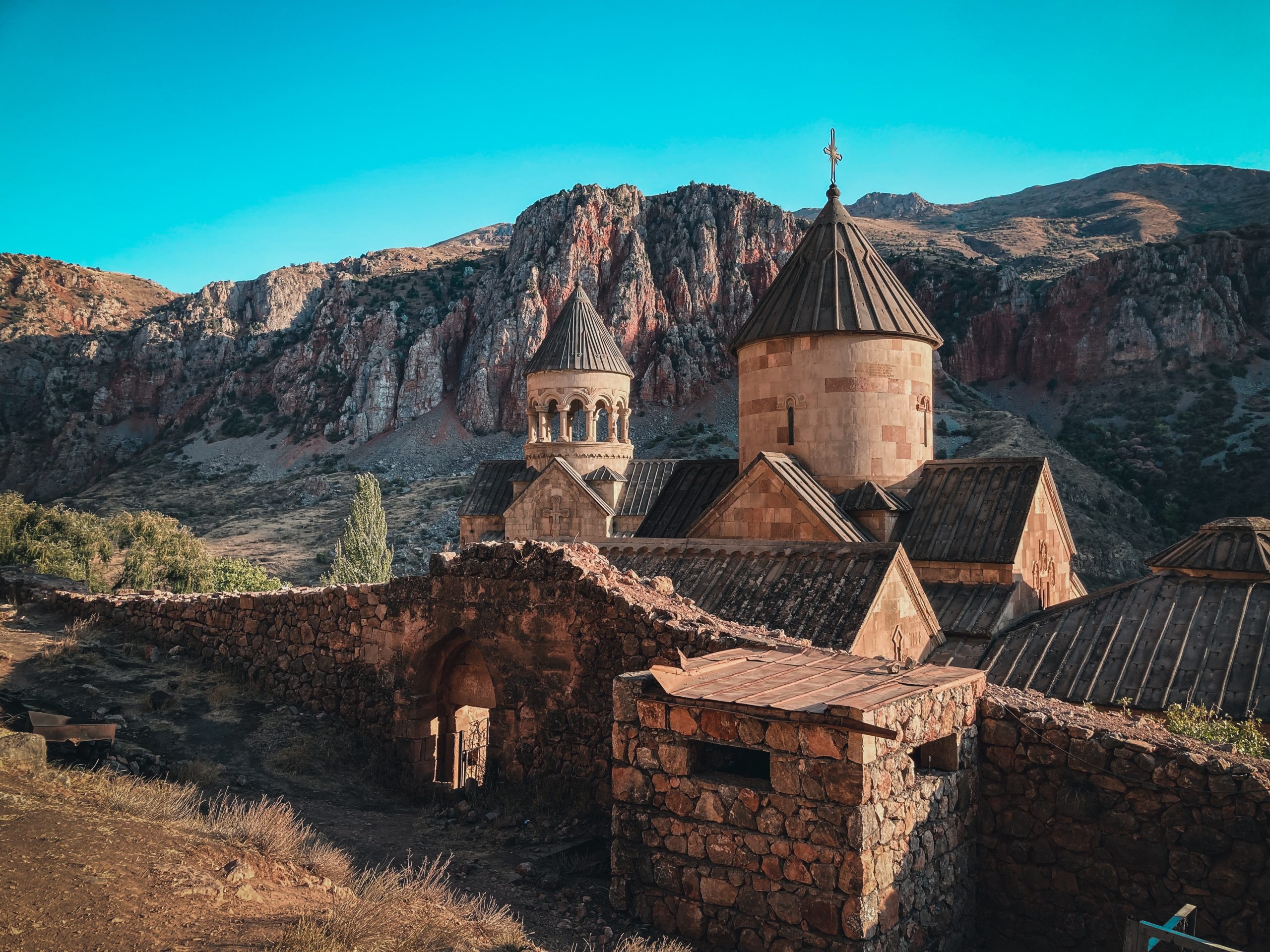
The medieval monastery of Noravank in Armenia. Photo: Shutterstock.com
Seven killed in Armenia-Azerbaijan border clash
A total of seven soldiers were killed when fighting broke out on the Azerbaijan-Armenia border on April 11, the deadliest incident there in seven months. The Armenian side reported four soldiers killed and six wounded, while Azerbaijan said three of its soldiers were killed and two were wounded. The fighting lasted for a few hours and took place near the village of Tegh.
At the end of March, the armed forces of Azerbaijan improved their positions in the same territory. According to a statement by the Armenian authorities, the Azerbaijani armed forces advanced 100-300 meters deep into the sovereign territory of Armenia. On April 11, the Azerbaijani military opened fire on Armenian soldiers from these new, improved positions.
“A group of soldiers of the armed forces of Azerbaijan, under the pretext of clarifying the border points, approached the soldiers of the armed forces of the Republic of Armenia, provoked and opened fire from firearms, and then other weapons of various calibres in the direction of the Armenian soldiers and the positions of the Armed Forces,” the Armenian Foreign Ministry said in a statement.
In remarks to parliament the day after the Tegh incident, Prime Minister Pashinyan said Azerbaijan’s “treacherous” attack could have been avoided if not for Armenian officials’ “failure” to obey his instructions. A few hours later, he dismissed the commander of the border troops of the National Security Service, Colonel Arman Maralchyan.
Azerbaijani expert Haji Namazov stressed that due to the absence of delimitation, nobody knows where exactly the border lies and therefore, it is not clear if Azerbaijani soldiers crossed it.
The EU observers had patrolled the area of Tegh village on April 11 hours before the Azerbaijani attack took place and were not present in the area during the shooting. “The EU Mission in Armenia (EUMA), as part of the implementation of its mandate, conducted its regular patrol to the area of Tegh and Kordnidzor villages during the morning of April 11,” the EU press service said in response to a query from Armenpress when asked whether the EU mission has notified the EU on the Azerbaijani attack. “However, they were not present in the area where the incident happened. In the late afternoon, the Mission was informed by Armenian authorities about the shooting,” it added.
Sources:
- MGDESYAN Arshaluis, Eurasianet.org, „Seven killed in Armenia-Azerbaijan border clash“, https://eurasianet.org/seven-killed-in-armenia-azerbaijan-border-clash
- JAM News, “‘Positional fighting will escalate into large-scale aggression.‘ Opinion from Yerevan“, https://jam-news.net/military-clash-near-the-village-of-tegh/
- JAM News, „What happened on the border between Azerbaijan and Armenia? Comment from Baku“, https://jam-news.net/what-happened-on-the-border-between-azerbaijan-and-armenia-comment-from-baku/
- Armenpress.am, „EU mission observers ‘were not present in the area’ when Azerbaijan attacked Armenian troops on April 11“, https://armenpress.am/eng/news/1108524.html
Scandal in Yerevan: Azerbaijani flag burned during opening ceremony of European Championships
Azerbaijani athletes boycotted the 2023 European Weightlifting Championships in Yerevan and returned home over the weekend after an Azerbaijani flag was set afire by famous Armenian fashion designer Aram Nikolyan at an opening ceremony.
After the incident, Nikolyan recorded a video in which he explained the motives of his act: “I want to make an important statement regarding my act. My act is exclusively the act of an Armenian, an Armenian with dignity, who does not belong to political power, and has his own opinion and vision. My desire was to prevent the Azerbaijani flag from flying in Yerevan, the capital of the Republic of Armenia. And most importantly, never think that Armenians get used to or try to adapt to certain situations. I’m sorry, there is an opinion that my actions may reflect badly on the men standing on the border. I pray for our men guarding the border.
Following the incident, Nikolyan has been put on the international wanted list, APA reports citing the Prosecutor General’s Office of the Republic of Azerbaijan. As JAM News later informed, Nikolyan will be banned from entering state institutions. He cannot even enter the territory of the Public Television of Armenia, where he works.
Sources:
- JAM News, „Scandal in Yerevan: Azerbaijani national team refused to participate in the European Championship“, https://jam-news.net/azerbaijani-flag-burned-in-yerevan/
- JAM News, Twitter, https://twitter.com/JAMnewsCaucasus/status/1649665084904419330
- Azatutyun.am, „Azeri Weightlifters Leave Armenia After Flag Incident“, https://www.azatutyun.am/a/32367275.html.
- APA, „Armenian who burned the Azerbaijani Flag in Yerevan was put on int’l wanted list“, https://apa.az/en/incident/armenian-who-burned-the-azerbaijani-flag-in-yerevan-was-put-on-intl-wanted-list-401472/
Two Azerbaijani soldiers detained in Armenia
Azerbaijan’s Foreign Ministry announced that two Azerbaijani soldiers, Agshin Babirov (born in 2004) and Huseyn Akhundov (born in 2003), got lost due to poor visibility and poor weather from the border area between Nakhchivan and Armenia “a few days “before April 10”.
According to independent Azerbaijani outlet Meydan TV, however, the uncle of one of the soldiers claimed they went missing on April 5. The first soldier, Agshin Babirov, was found and detained on April 10 by residents of the Ashotavan village in Syunik Province. Huseyn Akhundov was found on April 13 near the village of Achanan, around a 90-kilometre walk from Ashotavan and 40 kilometres from the border with Nakhchivan.
Shortly after the second soldier’s capture on Thursday morning, two videos spread widely online. The first allegedly showed Akhundov live-streaming from Syunik.
“By God, we have arrived in Armenia”, says Akhundov in the video. “We have spilt the blood of Armenians […] If we die, you should know that we are not traitors to the country”. Azerbaijani pro-government media claimed the video was old, from before the soldiers became lost.
The second shows the soldier on the ground, tied up and being kicked in the face. Images of the soldier around the time of his detention also showed him with blood and bruises on his face, with some shared on Azerbaijani social media appearing to show his captors holding knives while he lies tied on the ground.
Diplomatic missions in Baku immediately condemned the incident, with the US Embassy in Baku stating that it was “disturbed by a video appearing to depict violence against an Azerbaijani soldier in Armenia” and urging Azerbaijan and Armenia to resolve outstanding issues through peaceful negotiations.
A number of Armenian civil society activists also condemned the soldier’s mistreatment. “While it’s important to hold those responsible for the infiltration and murder accountable, it’s equally important to recognise that violence toward prisoners is never justified. The mistreatment of the captured Azerbaijani soldier by locals must be addressed”, Andranik Shirinyan, project coordinator for Freedom House in Armenia, wrote on Twitter.
On April 18, by the decision of the supervising prosecutor, the charges brought against Azerbaijani citizen Huseyn Akhundov were changed and supplemented. He has been charged with the murder of a 57-year-old security guard in the Syunik region, says the statement released by the Prosecutor’s Office.
Speaking to RFE/RL’s Armenian Service earlier on Tuesday, Narek Ghahramanian, a Kapan-born parliamentarian affiliated with the ruling Civil Contract party, said that Akhundov confessed to the murder. Ghahramanian suggested that investigators were looking for his weapon.
Prime Minister Nikol Pashinian said on April 12 that two Azerbaijani soldiers deserted their army unit in Nakhichevan because of “being subjected to hazing and humiliation by other soldiers.”
The Azerbaijani government demanded the immediate release of both servicemen charged with illegally crossing into Armenia. It did not immediately react to the murder charge brought against Akhundov.
Sargis Khandanian, the chairman of the Armenian parliament committee on foreign relations, indicated that given the accusations levelled against them, Yerevan does not intend to swap Akhundov and Bebirov for any of at least 33 Armenian soldiers who were taken prisoner during or after the 2020 Karabakh war and remain in Azerbaijani captivity. “Armenia is not planning to make any concessions on this matter,” Khandanian told reporters.
Sources:
- AGHAYEV Ismi, AVETISYAN Ani, OC Media, “Second Azerbaijani soldier captured in Armenia“, https://oc-media.org/second-azerbaijani-soldier-captured-in-armenia/
- STEPANIAN Ruzanna, Azatutyun.am, “Azeri Soldier Accused Of Murder In Armenia“, https://www.azatutyun.am/a/32369257.html
- News.am, „Azerbaijani serviceman killed a guard in Syunik, he has been indicted“, https://news.am/eng/news/755493.html
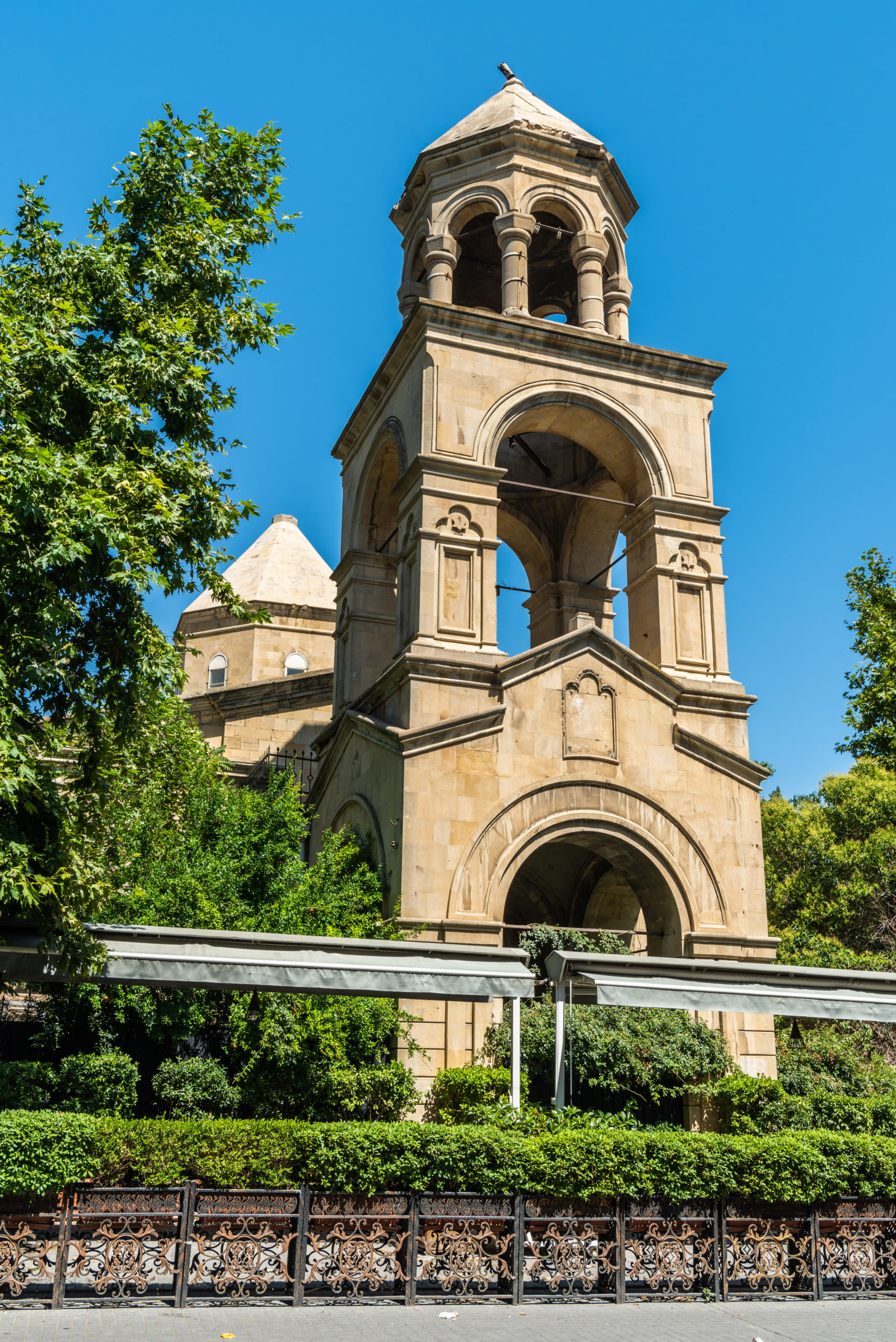
Baku, Azerbaijan. Photo: Shutterstock.com
Human rights activists report hundreds of detained religious Shias
According to the local media and rights activists, the Azerbaijani authorities have arrested hundreds of religious Shias in recent weeks. While pro-government media have reported on only a few of those cases, they have labelled a number of the detainees as spies working for Iran, despite the lack of evidence reflected in the charges filed against them.
As pressklub.az writes, the arrests have accelerated since the gun attack on Azerbaijani MP in late March, which Baku has suggested was Iran’s doing. On April 6, Azerbaijan’s law enforcement bodies released a joint statement saying that they carried out “joint special complex operational measures” to prevent “criminal acts aimed at destabilising the country that was being orchestrated by a group of people manipulated and financially compensated by the Iranian special services.”
The statement named eight people, saying that two ethnic Azeris living in Iran and cooperating with Iranian special services instructed an Azerbaijani citizen living in Azerbaijan’s central Tartar district to create a “resistance group” to violently seize power and then “forcefully change the constitutional structure of the Republic of Azerbaijan” to make the country a Shia theocracy.
These eight arrests are the only ones confirmed by the authorities. But media and rights activists have reported the arrests of hundreds. Rufat Safarov, director of the local human rights group Defense Line, says that more than 500 religious Shias have been arrested in recent weeks. “It’s true that Iran had a spy network inside Azerbaijan, and our citizens fell into this trap knowingly or unknowingly. In that regard, I stand by the law enforcement bodies who carry out the crackdown,” he told Berlin-based news outlet Meydan TV. “However, I can also presume that there are innocent people among the detainees, who were only practising their religion and perhaps criticised the government’s policy regarding religious freedoms.”
Nearly all the detainees identified by rights groups as having been religious Shias were, in fact, arrested on drug-related charges. Pro-government media outlets have leapt to declare some of them spies and traitors in the absence of any such official charges.
Source:
- Pressklub.az, „Azerbaijani authorities arrest hundreds of religious Shias“, https://pressklub.az/news/politics/azerbaijani-authorities-arrest-hundreds-of-religious-shias/?lang=en
- Eurasianet.org, „Mass arrests of religious Shias reported in Azerbaijan“, https://eurasianet.org/mass-arrests-of-religious-shias-reported-in-azerbaijan
BBC expose turns up the heat on shadowy Georgian ex-official
On April 12, the BBC published an article titled “On the hunt for the businessmen behind a billion-dollar scam”, detailing the results of a year-long journalistic investigation into a global fraudulent trading network that defrauded unwitting customers. The investigation produced a number of names that eventually led to a single figure – David Kezerashvili, the former defence minister of Georgia.
The report delivered another blow to the reputation of Kezerashvili, who has already been under scrutiny for his alleged meddling in Georgia’s opposition party politics. The BBC cited multiple pieces of evidence linking Kezerashvili to groups of businessmen and companies involved in the network, including what is known to police as the “Milton group” and a group predating it.
“Kezerashvili has frequently promoted the scam trading platforms on his personal social media accounts,” the BBC said. “Behind the scenes, Kezerashvili appeared to be at the centre of that network.” It is not the first time that the former official’s name came up in the context of journalistic investigations into alleged call centre fraud. He was mentioned in a 2020 OCCRP report on a Ukrainian call centre involving the Milton Group.
Kezerashvili responded to the accusations made in the journalistic investigation on his Facebook page, saying that he had “never” had any connection with the issue of so-called call centres described by BBC. “I declare with full responsibility that I have never participated in such schemes.” Kezerashvili said he would not ignore the damage caused to him by the published material, especially when “politicised justice is being carried out by the Georgian authorities” against him and Formula TV, which he founded. He also noted that this attack by the ruling party had an organised nature.
Parliament Speaker Shalva Papuashvili said the BBC’s investigation strengthened doubts that the money, which ex-defence minister Davit Kezerashvili invests in politics, NGOs and media, was stolen from the army and European pensioners.
“It is regrettable that Europe provides asylum to Kezerashvili. We see him plotting disorder in the country from there. He himself admits he finances political parties, media outlets, non-governmental sector. The person who stole 5 million from the army and then robbed European pensioners through a swindling scam is directly involved in Georgian politics,” Papuashvili said.
The Speaker expressed hope that European countries would handle the issue seriously and hand over former defence minister Kezerashvili to Georgia to convict him of the crimes he had committed. As Eurasianet.org reminds, Kezerashvili has already faced scrutiny for allegedly pulling the strings in opposition politics, particularly amid the recent leadership challenge in the United National Movement (UNM), the former ruling party. A group of top party members claimed Kezerashvili’s meddling was behind the ousting of now-former chairman Nika Melia.
After the BBC report made the rounds in Georgian media, Melia wrote on Facebook that he had “advised Davit Kezerashvili that staying away from politics would be good both for him and for the future of the country.” Other opposition groups have also tried to distance themselves from Kezerashvili and the party in which he allegedly calls the shots.
Kezerashvili, 44, was an early supporter of former President Mikheil Saakashvili’s United National Movement. He assumed the role of head of the Financial Police shortly after the party came to power in 2004. In 2006, at the age of 28, he became Georgia’s defence minister, a post he held during Georgia’s defeat in the August 2008 war with Russia. He quit that post in late 2008 and moved to the business world, with various reports associating his name with oil and transportation businesses, among others. With the change of government in 2012, the ex-minister left the country before being charged with corruption. France and Great Britain have denied Georgia’s requests to extradite him. Kezerashvili later announced he was transferring half of his controlling share of TV Formula to the company’s “collective” but would continue to finance the channel.
Sources:
- GABRITCHIDZE Nini, Eurasianet.org, „BBC expose turns up the heat on shadowy Georgian ex-official“,https://eurasianet.org/bbc-expose-turns-up-the-heat-on-shadowy-georgian-ex-official
- Civil.ge, „BBC Investigation Links Kezerashvili to a Global Scam Network“, https://civil.ge/archives/537301
- Georgia Today, „Parliament Speaker: BBC heightens doubts that ex-defence minister’s money invested in politics, NGOs, media, was stolen“, https://georgiatoday.ge/parliament-speaker-bbc-heightens-doubts-that-ex-defense-ministers-money-invested-in-politics-ngos-media-to-be-stolen/
- SHOSHIASHVILI Tata, OC Media, „Georgian former Defence Minister gives up controlling share of Formula TV“, https://oc-media.org/georgian-former-defence-minister-gives-up-controlling-share-of-formula-tv/
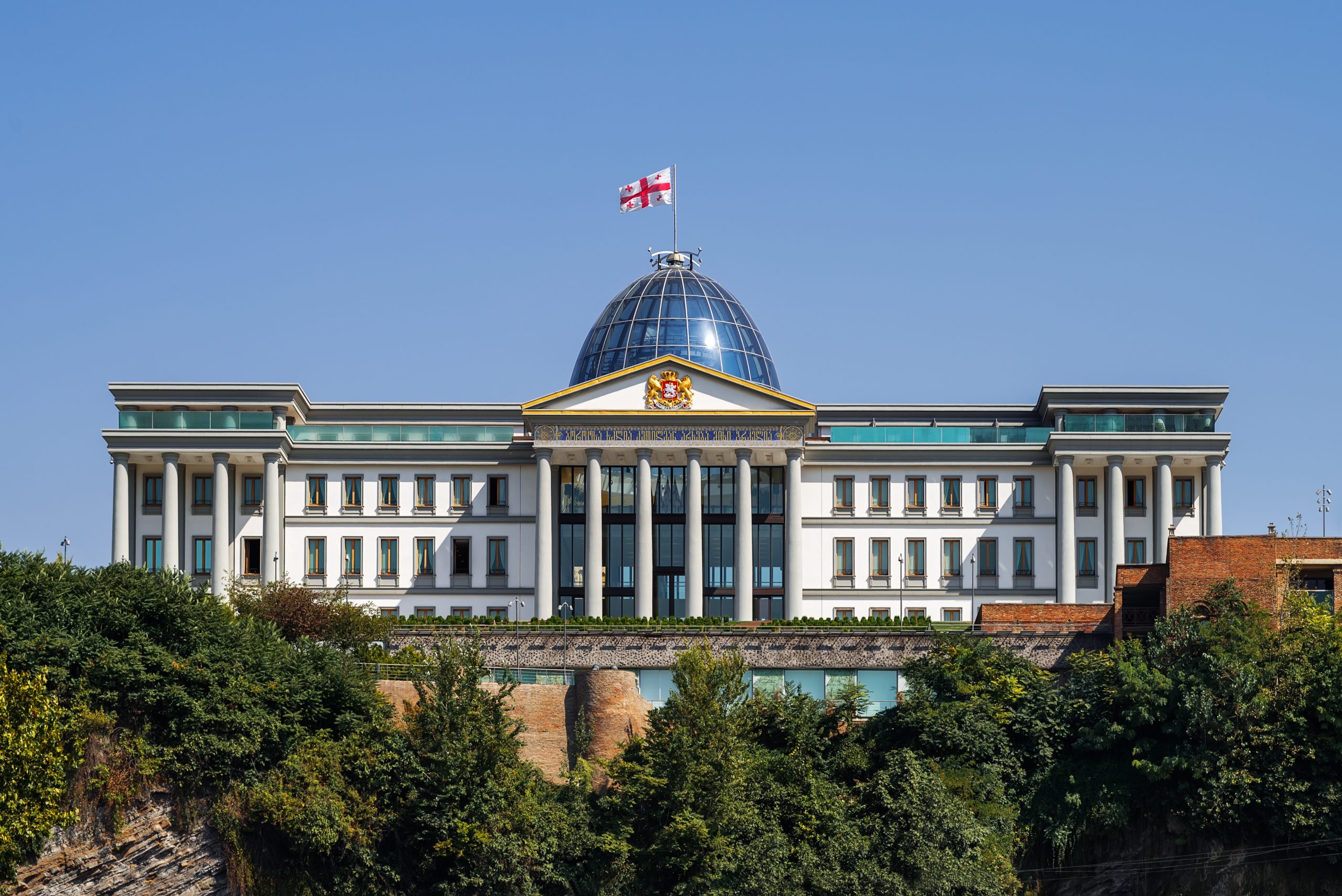
Wagner convict arrested for the murder of man with disabilities in de facto South Ossetia
A man released from prison after volunteering to fight for Russia in the Wagner private military company has been arrested in de facto South Ossetia for the murder of a local man with disabilities. South Ossetian news agency RES reported the arrest of South Ossetian man Georgiy Siukayev in the early hours of April 18. Two other people were arrested earlier.
Siukayev is accused of stabbing to death Soslan Valiyev, a 38-year-old resident of Tskhinvali (Tskhinval), on Monday. Valiyev was reported to have succumbed to his injuries in the hospital soon after the incident. Two local Telegram channels, Sapa 15 and Nog Iriston, asserted that Siukayev joined Wagner while serving time for killing a military commander in the Donbas in the mid-2010s.
Meanwhile, surveillance video has appeared on Telegram channels, clearly showing the moment of the attack on Soslan Valiyev. Valiyev’s murder has caused outrage in South Ossetia. On Monday night, less than an hour before news emerged of Siukayev’s arrest. RES reported that de facto South Ossetian President Alan Gagloyev had held an emergency meeting with law enforcement leaders. Gagloyev reportedly demanded that they “leave no stone unturned” in their search for the suspect. “This is a resonant case”, Gagloyev’s website reported him as saying.
Many South Ossetians expressed sorrow and outrage over the murder of Soslan Valiyev, also known locally as “Tsugri”. He was widely described as a man with developmental disabilities and with strong ties to the local community.
Eduard Kokoity and Anatoly Bibilov, the second and fourth de facto South Ossetian presidents, also spoke fondly of Valiyev. He was a “kind and harmless guy whom everyone, with rare exceptions, loved as their own”, Bibilov wrote on his Telegram channel.
Prigozhin’s press service, in contrast, referred to the victim on Wednesday as a “lunatic who was frequently inebriated with alcohol and harassed local residents”. People on social networks are writing angry comments, demanding the perpetrators be punished to the fullest extent of the law. Many point to the fact of increased crime after Alan Gagloev came to power. Moreover, people blame the President’s brother Alik Gagloev, whose name has repeatedly appeared in various criminal cases, for the aggravation of the crime situation.
He was accused of attempting to commit a terrorist attack in 2007 in Tskhinval and of committing a triple murder of Russian citizens around the same period. Recently, Alik Gagloev again became a defendant in a criminal scandal — according to eyewitnesses, he threatened Dzantemir Khubaev, an employee of the Ministry of Internal Affairs, with a pistol. No investigation into this incident followed; it was simply hushed up, although there were many witnesses.
In this case, they say that at least one of the suspects in the murder of Tsugri is friends with Alik and Alan Gagloev. This is Soslan Gabaraev, who opened fire a few months ago near the office of the ruling Nykhas party in Tskhinvali. Some believe that the Gagloev brothers are simply covering for their criminal friends, inspiring them with a sense of impunity and thereby contributing to the growth of crime, writes JAM News.
Sources:
- KINCHA Shota, “Wagner convict arrested for the murder of man with disabilities in South Ossetia“, https://oc-media.org/wagner-convict-arrested-for-murdering-man-with-disabilities-in-south-ossetia/
- TARKHANOVA Zhanna, “Former Wagner mercenary arrested for high-profile murder in South Ossetia“, https://jam-news.net/murder-in-south-ossetia/
Georgian Dream stalls parliament’s investigation of US-sanctioned judges
During the April 20 plenary session, for the third day in a row, the Georgian ruling party Georgian Dream prevented the vote on the creation of the parliamentary investigation commission to look into the allegations of corruption in the judiciary by not registering for the session. As a result, there was no quorum for the vote to take place. Only 52 MPs registered, whereas at least 76 MPs are needed for a quorum.
Before the registration procedure, the chairman of “Georgian Dream,” Irakli Kobakhidze, said that all MPs are obliged to take care of “state sovereignty, the principle of judicial independence” and that the ruling party acts according to these principles. “Of course, we will again respect the principle of judicial independence, and we will not be registered today,” he said.
The opposition came out with the initiative to create the commission last week in response to the recent sanctioning of four judges by the US State Department for their alleged involvement in “significant corruption.”
“Georgian Dream politically and legally joined the clan and confirmed its complicity in the crime – Let us remind you that the patronage of the sanctioned clan threatens the security of the Georgian Dream as well”, Lelo political party deputy Ana Natsvilishvili told reporters, evaluating the decision of the majority to refuse registration as a sign of solidarity with the judges, and due to the lack of a quorum, the vote on the creation of the investigative committee was not held.
Sources:
- Civil.ge, “For Third Day in a Row, Parliament Fails to Reach Quorum“, https://civil.ge/archives/538214
- Interpressnews, „Ana Natsvlishvili: Georgian Dream politically and legally joined the clan and confirmed its complicity in the crime“, https://www.interpressnews.ge/en/article/124908-ana-natsvlishvili-georgian-dream-politically-and-legally-joined-the-clan-and-confirmed-its-complicity-in-the-crime/

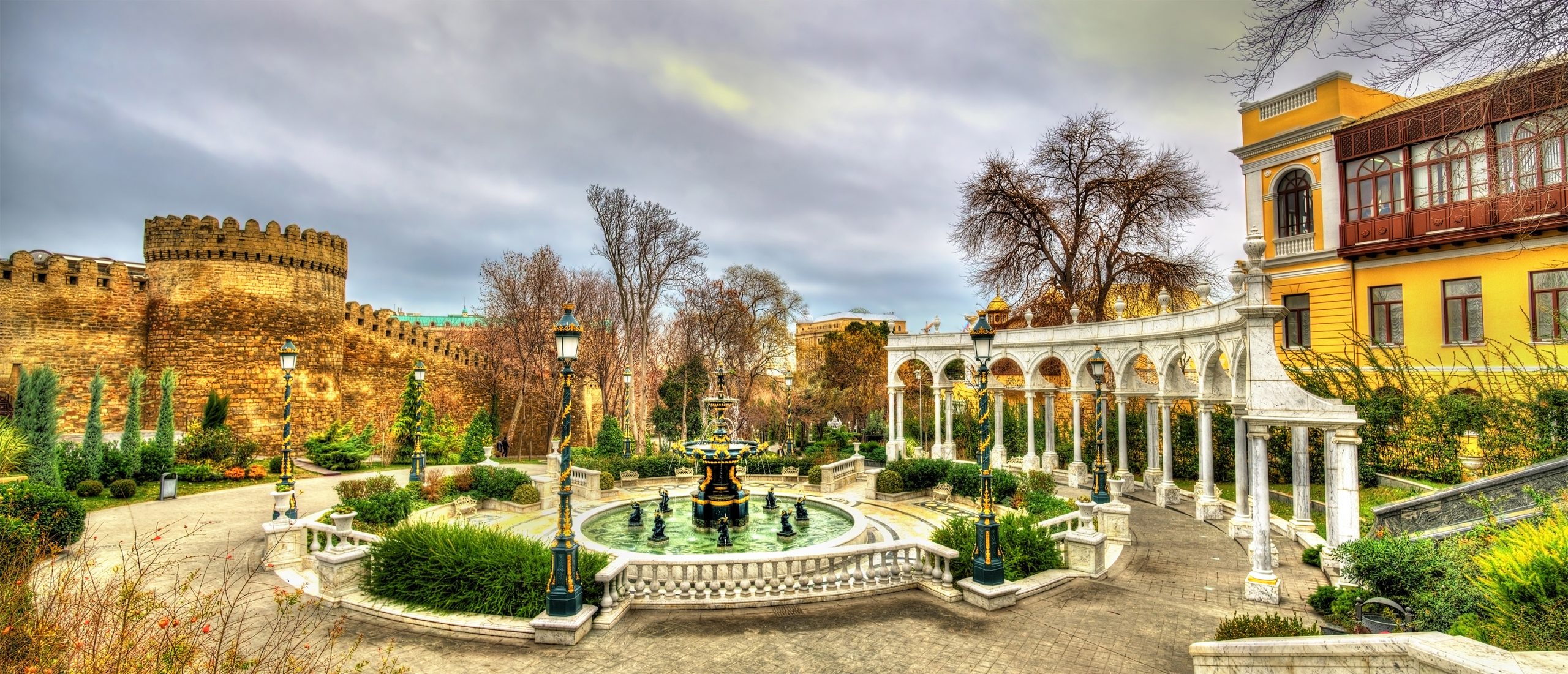
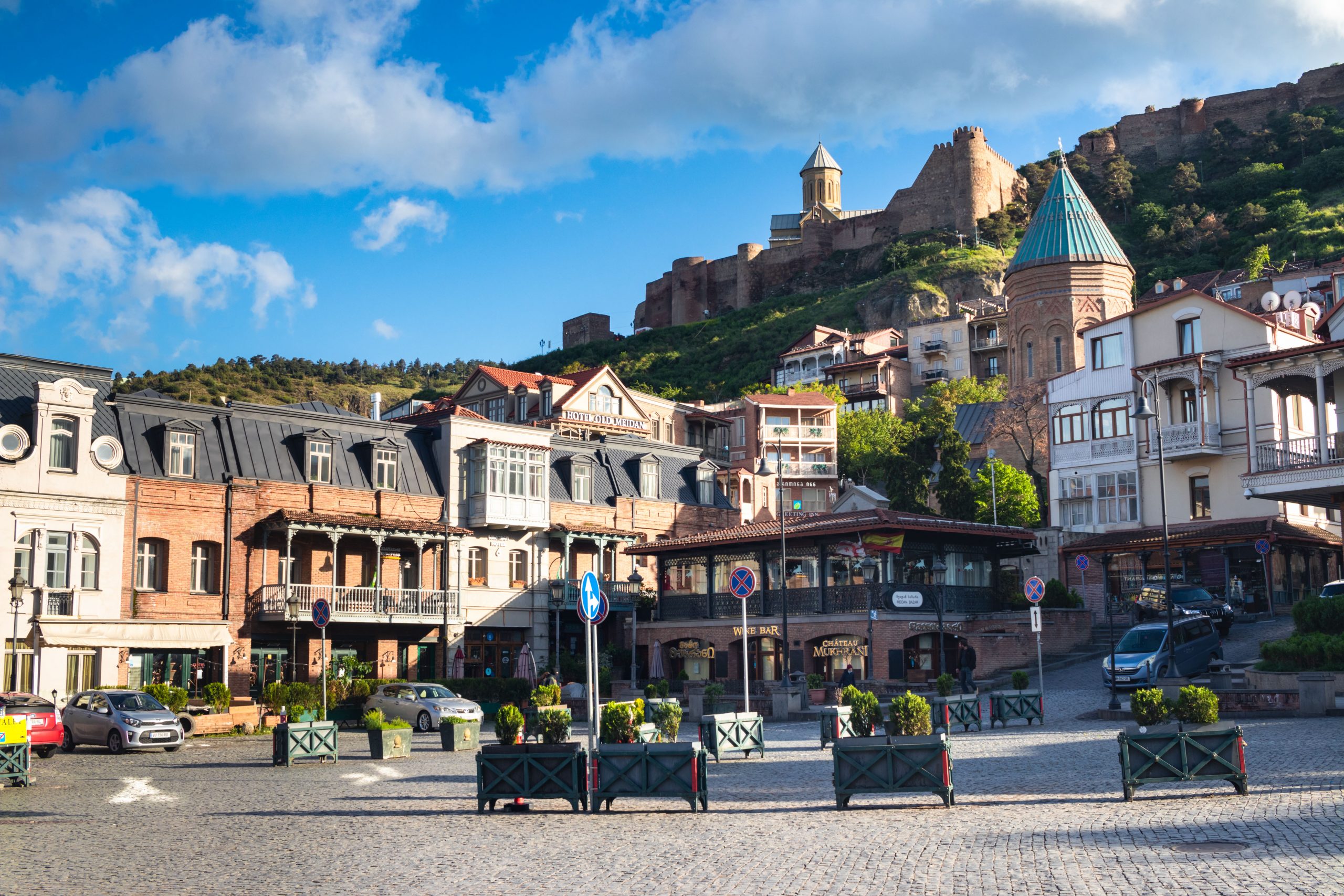
Contact us